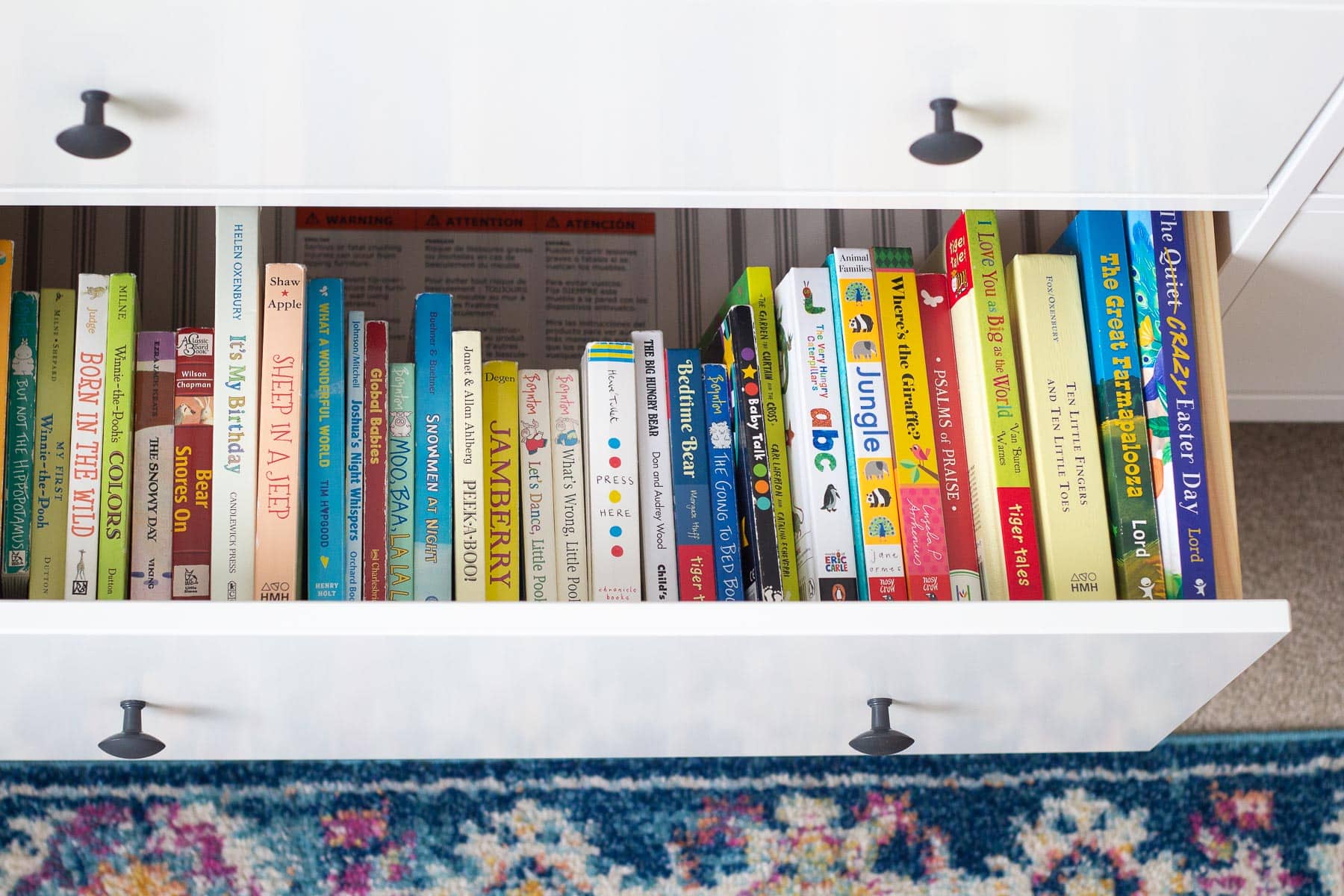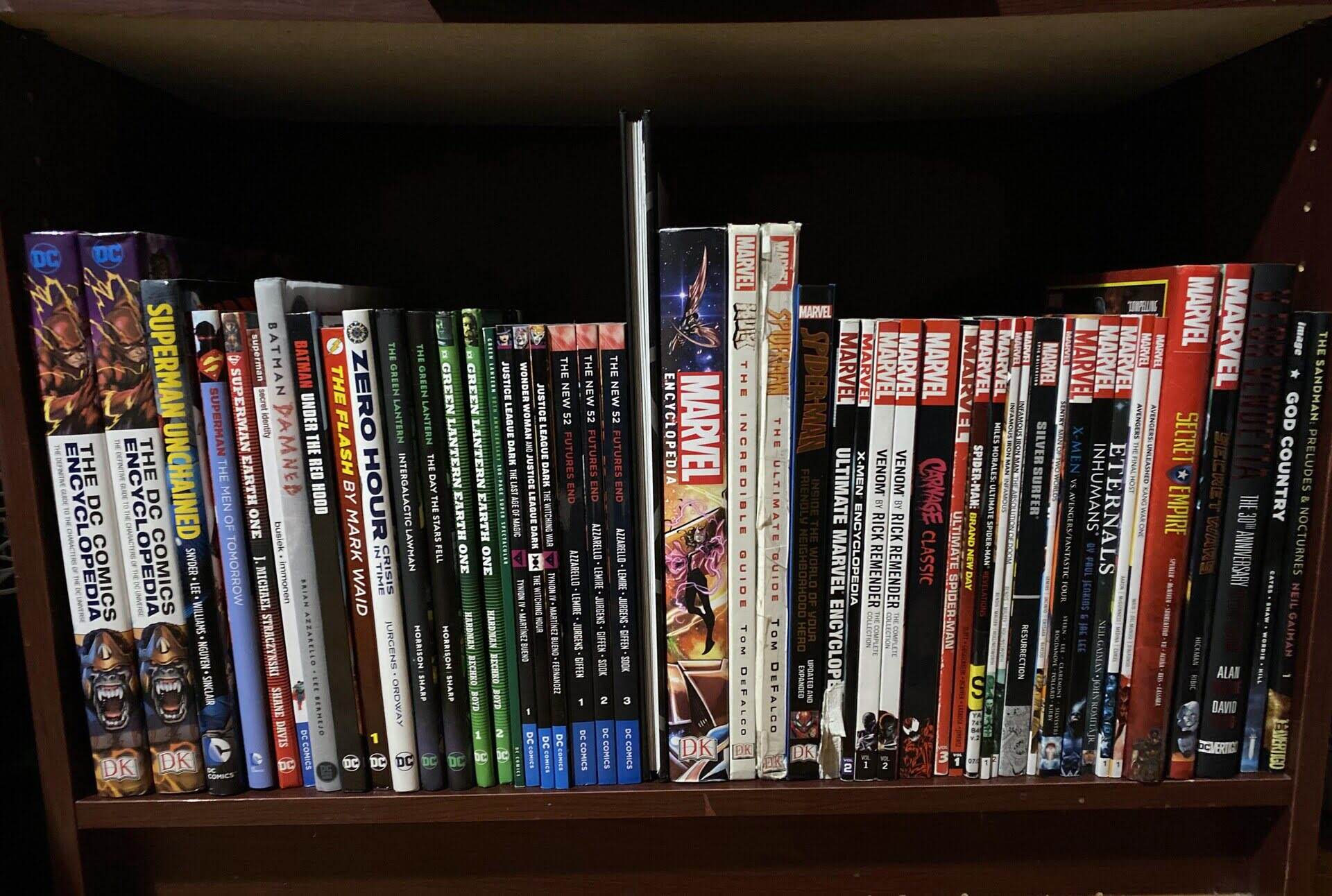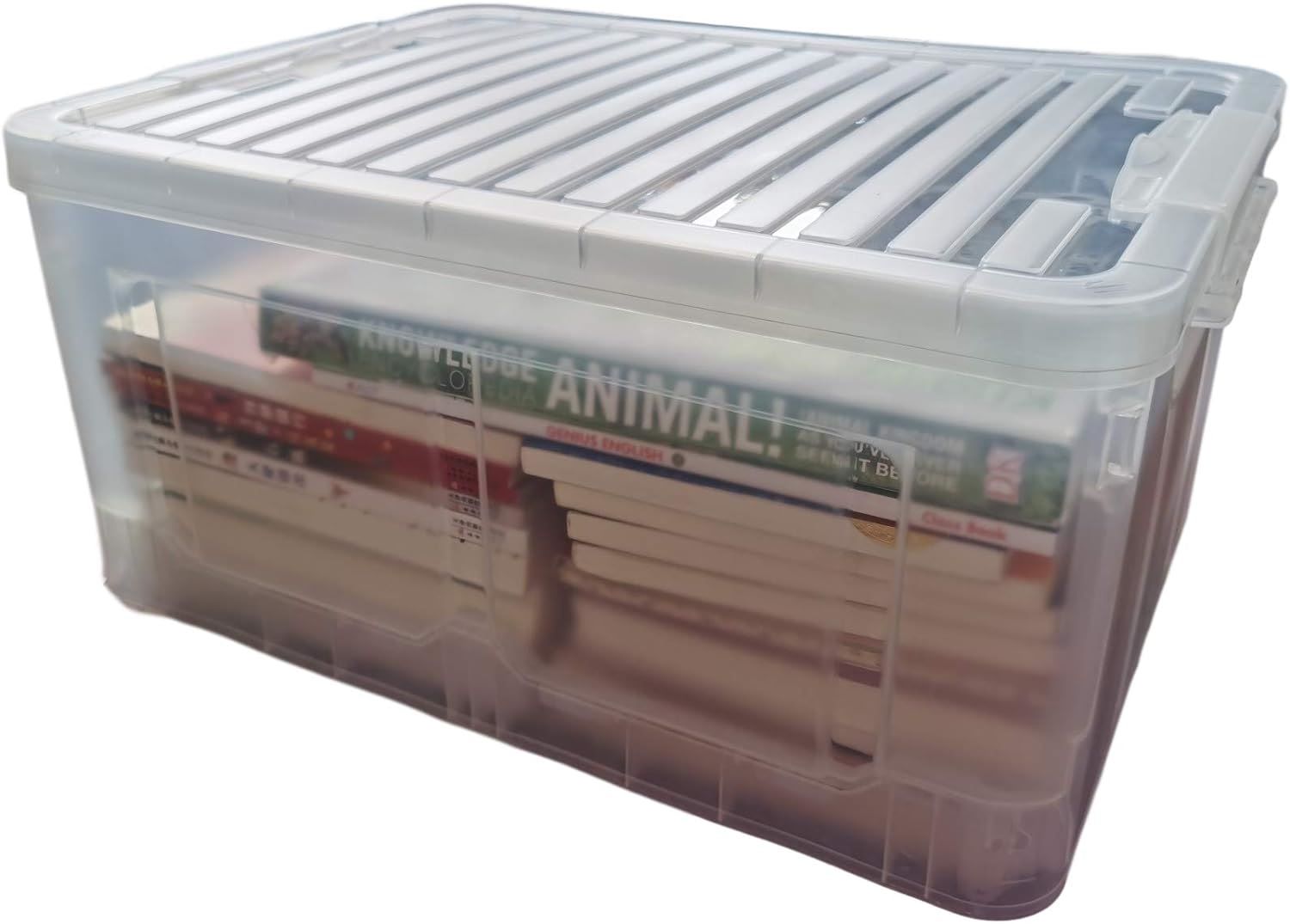

Articles
How To Store Books In Basement
Modified: January 19, 2024
Discover the best tips and techniques for storing your articles in the basement. Safely preserve your book collection with our expert guide.
(Many of the links in this article redirect to a specific reviewed product. Your purchase of these products through affiliate links helps to generate commission for Storables.com, at no extra cost. Learn more)
Introduction
Storing books in your basement can be a convenient solution for those who have limited space in their homes. However, basements can present unique challenges when it comes to preserving the condition of your books. Moisture, humidity, pests, and temperature fluctuations can all pose a threat to the longevity and readability of your beloved book collection.
In this article, we will explore effective strategies for storing books in a basement while ensuring their protection and preservation. From assessing the basement space to choosing the right storage containers and implementing key preventive measures, we will guide you through the process of creating a safe and organized environment for your books.
By following these tips and guidelines, you can rest assured that your books will remain in excellent condition, ready to be enjoyed for years to come.
Key Takeaways:
- Safeguard your basement book collection by assessing the environment, choosing the right containers, and implementing preventive measures to protect against moisture, pests, and temperature fluctuations.
- Create an organized and well-preserved book storage space in your basement by arranging books by category, labeling containers, and regularly checking for potential issues to ensure long-term enjoyment of your collection.
Read more: How To Store Books In A Damp Basement
Assessing the Basement
Before you start storing your books in the basement, it is important to assess the overall condition of the space. This will help you identify any potential issues that may affect the storage environment for your books.
Firstly, check for any signs of moisture or water leakage. Look for water stains on the walls or floor, and check if there are any cracks in the foundation that could allow water to seep in. If you notice any dampness or signs of water damage, it is crucial to address these issues before storing your books. Consider consulting with a professional to help fix any water-related problems.
Secondly, evaluate the humidity level in the basement. You can use a hygrometer, which is a device that measures the humidity in the air. The ideal humidity level for storing books is around 40-50%. If the humidity level in your basement is consistently higher, it may be necessary to invest in a dehumidifier to regulate the moisture content.
Lastly, take note of the temperature fluctuations in the basement. Extreme temperature changes can cause damage to your books, so it is important to ensure that the temperature remains stable. Aim for a temperature range between 60-70 degrees Fahrenheit.
By carefully assessing the condition of your basement, you can proactively address any potential issues and create an optimal storage environment for your books.
Cleaning and Preparing the Space
Once you have assessed the condition of your basement, the next step is to thoroughly clean and prepare the space for storing your books. This will help eliminate any potential dust, mold, or debris that could harm your book collection.
Start by removing any existing clutter or items that may be stored in the basement. This will allow you to have a clear and organized space for your books. Sweep or vacuum the floors to remove any dust or dirt particles.
Next, inspect the walls and shelves in the basement. If you notice any signs of mold or mildew, it is important to address these issues promptly. Use a mixture of water and vinegar or a specialized mold cleaner to clean the affected areas. Ensure that the space is well-ventilated during and after the cleaning process to prevent the growth of mold.
Once the space is clean, consider applying a fresh coat of paint to the walls. This can help create a clean and visually appealing environment for your books. Choose a paint that is mildew-resistant and suitable for basement use.
In addition to cleaning, it is important to check the basement for any potential sources of pests. Seal any cracks or openings in the walls or floors to prevent pests from entering the space. Consider using natural pest deterrents such as cedar chips or lavender sachets to further protect your books.
By cleaning and preparing your basement, you are creating a fresh and suitable environment for storing your books. This will help ensure that your book collection remains in optimal condition.
Choosing the Right Storage Containers
When it comes to storing books in your basement, selecting the right storage containers is crucial for keeping them safe and well-preserved. Here are some key considerations to keep in mind:
- Material: Opt for storage containers made from sturdy and durable materials such as plastic or metal. These materials provide excellent protection against moisture and pests. Avoid using cardboard boxes, as they are more susceptible to damage from humidity and pests.
- Size: Choose storage containers that are appropriately sized for your books. Avoid overpacking the containers, as this can lead to damage such as bent pages or spines. It is better to have slightly larger containers that allow for proper arrangement and handling of books.
- Lid and Closure: Ensure that the storage containers have secure lids or closures to keep out dust, moisture, and pests. Look for containers with tight-fitting seals to provide maximum protection.
- Transparent: Consider using transparent storage containers, or at least containers that have a clear window, to easily identify the books inside without having to open each container. This will help you locate specific books without unnecessary handling.
- Stackable: Opt for storage containers that are designed to be stackable. This will help save space in your basement and maximize storage capacity. Make sure the containers are sturdy enough to bear the weight of multiple stacked containers.
It is also a good idea to label each storage container with the appropriate categories or genres of books it contains. This will make it easier to locate specific books when needed.
By choosing the right storage containers, you can ensure that your books are well-protected and easily accessible in your basement storage setup.
Arranging Books by Category or Genre
Properly organizing your books by category or genre is essential for efficient storage and easy access. When arranging your books in the basement, consider the following tips:
- Group Similar Books: Categorize your books based on their genre, subject matter, or format. For example, you can create separate sections for fiction, non-fiction, biographies, or reference books. Grouping similar books together makes it easier to find a specific book when you need it.
- Alphabetical Order: Within each category, arrange the books alphabetically by the author’s last name or by the book title. This will further enhance the organization and make it quicker to locate a particular book.
- Consider Size and Weight: If you have books of different sizes or weights, you may want to consider arranging them accordingly. Place heavier and larger books at the bottom of the storage containers to prevent them from damaging lighter or more delicate books.
- Create Dedicated Sections: If you have a vast collection of books within a particular genre or category, consider creating dedicated sections or shelves for them. This will provide easier access and prevent overcrowding or disorganization.
- Leave Some Room for Growth: Allow for some empty space in each storage container or section to accommodate future additions to your book collection. This will save you from having to reorganize everything every time you acquire new books.
By arranging your books in a logical and structured manner, you can maximize the use of space in your basement storage area while also making it effortless to find the books you’re looking for.
Read more: How To Store Books Properly
Properly Labeling and Organizing the Containers
Along with arranging your books by category or genre, it is crucial to properly label and organize the storage containers in your basement. This will make it easier to locate specific books and maintain a well-structured storage system. Here are some tips for effective labeling and organization:
- Clear and Visible Labels: Use clear and visible labels on each storage container to indicate the contents. You can create labels using adhesive labels, sticky notes, or even label holders. Make sure the labels are easy to read and provide a brief description of the books inside.
- Consistent Labelling System: Establish a consistent labelling system across all the containers. Use a numbering or color-coding system to indicate different genres or categories. This will help create a uniform and organized look.
- Label on Multiple Sides: Place labels on multiple sides of each container, especially if they are stacked. This will make it easier to identify the contents from different angles and avoid having to move or dismantle the stacks to locate the desired container.
- Inventory List: Create an inventory list or database to keep track of the books in each container. Include details such as the title, author, genre, and container number. This will make it easier to search for specific books and update your collection when needed.
- Easily Accessible Placement: Store the containers in a way that allows for easy access and visibility of the labels. Avoid placing them against walls or in hard-to-reach corners that may make it challenging to read the labels or retrieve the desired container.
By properly labeling and organizing the storage containers, you can create a systematic and efficient cataloging system for your book collection. This will save you time and frustration when searching for particular books in your basement.
Store books in the basement by keeping them off the floor to prevent moisture damage. Use shelves or plastic bins to protect them from potential water leaks. Keep the area well-ventilated to prevent mold and mildew.
Protecting Books from Moisture and Humidity
Moisture and humidity can be damaging to books, causing mold, mildew, and deterioration of the paper and bindings. When storing books in your basement, it is crucial to take proactive measures to protect them from these risks. Here’s how:
- Dehumidifier: Invest in a dehumidifier to regulate the moisture levels in your basement. Keep the dehumidifier running to maintain an optimal humidity range of around 40-50%. This will help prevent excessive moisture that can damage your books.
- Waterproof Containers: Choose waterproof storage containers to provide an extra layer of protection against moisture. Plastic or metal containers with secure lids are ideal for keeping your books safe from any accidental water or humidity exposure.
- Silica Gel Packs: Place silica gel packs inside the storage containers to absorb any excess moisture. These can be found in many packaging materials or purchased separately. Make sure to replace the silica gel packs periodically to maintain their effectiveness.
- Avoid Basement Floor: Avoid placing the storage containers directly on the basement floor. Moisture can seep through the concrete and harm the books. Use pallets or wooden boards as a barrier between the containers and the floor.
- Use Bookends: Position bookends vertically within the storage containers to keep the books upright. This will prevent them from sagging or leaning, which can lead to damage. Bookends also assist in maintaining proper airflow around the books.
- Ventilation and Air Circulation: Ensure proper ventilation and air circulation in your basement. Open windows or use fans to keep the air flowing. Good air circulation helps prevent the buildup of humidity and stagnant air that can damage books.
- Avoid Overpacking: Avoid overpacking the storage containers with too many books. Overcrowding can lead to poor airflow and increased humidity levels. Leave some space between books to allow for adequate ventilation.
By taking these preventative measures, you can minimize the risk of moisture and humidity damage to your books. This will help preserve the quality and longevity of your book collection for years to come.
Keeping Pests Away from Your Books
Pests can wreak havoc on your book collection, causing irreparable damage to the pages, covers, and bindings. To protect your books from pests while storing them in your basement, follow these preventive measures:
- Seal Entry Points: Inspect your basement for any cracks, gaps, or openings that may serve as entry points for pests. Seal these openings with caulk or other suitable materials to prevent pests from infiltrating the storage area.
- Use Pest Deterrents: Consider using natural pest deterrents, such as cedar chips, lavender sachets, or mothballs, near your books and storage containers. The aroma of these natural materials can repel pests and help keep them away from your books.
- Regular Cleaning: Maintain a clean and clutter-free environment in your basement. Regularly sweep or vacuum the area to remove dust, crumbs, and other potential food sources for pests. Pests are less likely to be attracted to spaces that are clean and well-maintained.
- Avoid Food and Liquid: Avoid storing any food items or liquids in the vicinity of your books. Food and spills can attract pests and increase the risk of infestation. Keep your storage area solely dedicated to your book collection.
- Inspect Books Regularly: Periodically inspect your books for any signs of pest activity. Look for chewed edges, feces, or dead insects. If you spot any such signs, take immediate action to address the infestation and prevent further damage to your books.
- Professional Pest Control: If you notice a persistent pest problem in your basement, consider consulting with a professional pest control service. They can assess the situation and implement appropriate measures to eliminate pests and prevent future infestations.
By implementing these pest prevention strategies, you can safeguard your books from potential damage and ensure a pest-free storage environment for your collection.
Maintaining the Ideal Temperature for Book Storage
The temperature of your basement plays a crucial role in preserving the condition of your books. Fluctuations in temperature can cause damage to the paper, ink, and bindings over time. To maintain the ideal temperature for book storage, follow these guidelines:
- Avoid Extreme Temperatures: Avoid storing your books in areas of the basement that are prone to extreme temperatures, such as near heating vents or direct sunlight. Excessive heat can cause the pages to become brittle, while extreme cold can lead to moisture buildup and mold growth.
- Keep the Temperature Stable: Aim to maintain a stable temperature range between 60-70 degrees Fahrenheit (15-21 degrees Celsius) in your basement. Fluctuations outside of this range should be minimized, as sudden changes in temperature can cause the books to expand and contract, leading to damage.
- Insulate the Space: If your basement is not well-insulated, consider adding insulation to regulate temperature fluctuations. Insulation helps keep the temperature more consistent and reduces the impact of external temperature changes.
- Monitor with a Thermometer: Place a thermometer in your basement to regularly monitor the temperature. This will allow you to identify any areas that may experience significant temperature variations and adjust your storage accordingly.
- Avoid HVAC Ventilation: Avoid storing books near HVAC (heating, ventilation, and air conditioning) vents. These vents can introduce dry or humid air, leading to changes in temperature and moisture levels that can harm your books.
- Consider Climate Control Systems: If you have an extensive book collection or live in an area with extreme climate conditions, you may want to consider investing in a climate control system. These systems help maintain a consistent temperature and humidity level, ensuring optimal conditions for book storage.
By maintaining a stable and suitable temperature for your books, you can mitigate the risk of damage and help preserve the integrity of your collection for years to come.
Read more: How To Store A Lot Of Books
Checking on Your Books Regularly
While storing your books in the basement, it is important to regularly check on them to ensure their continued well-being. Regular inspections can help identify and address any potential issues before they cause significant damage. Here are some key points to keep in mind when checking on your books:
- Inspect for Moisture or Mold: During your regular checks, carefully examine the storage containers and the books themselves for any signs of moisture or mold. Look for water stains, musty odors, or visible mold growth. If you detect any of these issues, take immediate action to prevent further damage.
- Check for Pest Infestations: Inspect the storage area for any signs of pests or pest activity. Look for chewed edges, droppings, or evidence of pests nesting. If you notice any signs of infestation, take prompt measures to eliminate the pests and protect your books.
- Ensure Proper Organization: Check that your books are still properly organized within the storage containers. Over time, books may shift or become disorganized, especially if they are frequently accessed. Reorganize as needed to maintain a neat and organized storage system.
- Assess the Physical Condition: Take the time to assess the physical condition of your books during your checks. Look for any signs of damage, such as torn pages, loose bindings, or faded ink. Identifying these issues early on allows for timely repairs or replacements.
- Reevaluate Storage Conditions: As you check on your books, reevaluate the temperature, humidity, and overall storage conditions in your basement. Ensure that the measures you implemented to protect your books are still functioning effectively. Make necessary adjustments if needed.
- Update your Inventory List: As you inspect your books, update your inventory list or database to reflect any changes or additions to your collection. This will help you keep track of your books and make it easier to locate specific titles in the future.
Regularly checking on your books allows you to stay proactive in maintaining their condition and addressing any issues promptly. By dedicating a little time and attention, you can ensure the long-term preservation of your valued book collection.
Conclusion
Storing books in a basement can be a practical solution for those with limited space. However, it is essential to take the necessary steps to protect and preserve your book collection in this environment. By following the strategies outlined in this article, you can create a safe and organized storage space that safeguards your books from moisture, pests, temperature fluctuations, and other potential risks.
Start by assessing the condition of your basement, addressing any moisture or humidity issues, and creating a clean and well-prepared storage area. Choose the right storage containers, arrange your books by category or genre, and label and organize them for easy access. Implement preventive measures to protect your books from moisture and humidity, and take steps to keep pests away from your collection. Finally, maintain the ideal temperature range for book storage and regularly check on your books to ensure their condition and address any potential problems.
By investing time and effort into proper book storage practices, you can enjoy a well-preserved and protected book collection in your basement. Your books will remain in excellent condition, ready to be enjoyed for years to come. So, go ahead and embark on organizing and storing your books in your basement, knowing that you have taken the necessary steps to maintain their integrity.
Frequently Asked Questions about How To Store Books In Basement
Was this page helpful?
At Storables.com, we guarantee accurate and reliable information. Our content, validated by Expert Board Contributors, is crafted following stringent Editorial Policies. We're committed to providing you with well-researched, expert-backed insights for all your informational needs.














0 thoughts on “How To Store Books In Basement”